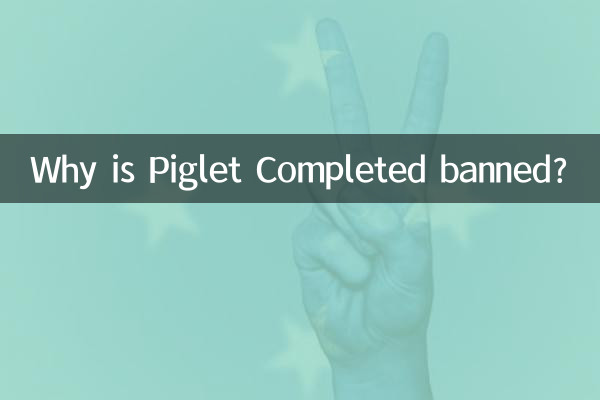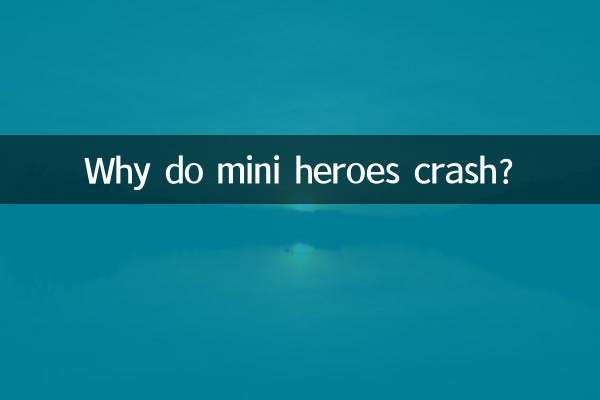"Why is Peppa Pig banned?" 》
In recent years, the cartoon "Peppa Pig" has become a children's cultural phenomenon due to its global popularity. However, this seemingly harmless cartoon has been "banned" or "limited" in some countries or platforms. This article will analyze the reasons for the ban of "Peppa Pig" and the focus of controversy based on the hot topics and structured data on the Internet in the past 10 days.
1. Statistics of hot topics on the entire network in the past 10 days

| Topic keywords | Number of discussions (10,000) | Main platform |
|---|---|---|
| Peppa Pig is banned | 12.5 | Weibo, Zhihu |
| Controversy over children’s animation content | 8.3 | Douyin, Bilibili |
| Parents complain about Peppa Pig | 5.7 | Xiaohongshu, Tieba |
| Cartoon values guidance | 4.2 | WeChat public account |
2. Three major reasons why "Peppa Pig" was banned
1.Controversy over children's behavior imitation: Some parents believe that Peppa Pig’s behaviors such as jumping into mud pits and talking back in the animation are easily imitated by young children, leading to educational problems in real life. For example, Weibo user "@parenting expert 李师Sensei" pointed out: "After watching the movie, the children deliberately imitated Peppa Pig and stepped into puddles, and even spoke in a rude tone to their parents."
2.conflict of cultural values: In some areas, "Peppa Pig" caused controversy due to its reference to "Western lifestyle". For example, in Middle Eastern countries, it was temporarily removed from the shelves due to conflicts between its character image and religious teachings; there are also voices in the country that believe that it "overemphasizes individualism."
3.Platform content review and upgrade: Recently, short video platforms have strengthened the control of content for young children. Secondary videos of "Peppa Pig" uploaded by some users were removed from the shelves in batches because they contained dangerous actions (such as the spoof of "people pretending to be Peppa Pig and jumping off a building"), which accidentally damaged the reputation of the original animation.
3. Comparison of broadcast ban cases at home and abroad
| Region/Platform | blackout time | official reason |
|---|---|---|
| A short video platform in China | March 2024 | "Poor imitation content" |
| saudi arabia | 2019 | "Violates Islamic values" |
| A school in Australia | 2022 | 'Potential discrimination against non-traditional families' |
4. Differences in opinions between experts and netizens
1.Support banned parties: Child psychologist Wang Min (certified by Zhihu) said: "Animations need to bear educational responsibilities and avoid conveying behavioral cues that blur boundaries."
2.Oppose the ban: Station B’s UP owner “Animation Archives” retorted: “Parents should take the initiative to guide rather than simply ban. Peppa Pig’s theme of friendship still has positive significance.”
3.compromise suggestion: Most netizens called for the adoption of a "rating system" rather than a blanket ban.
5. Summary
The essence of the controversy of "Peppa Pig" is the collision between children's content review standards and social values. In the era of information explosion, how to balance entertainment and education still needs to be jointly explored by the industry, families and regulators. As of press time, the animation is still available for viewing on mainstream video platforms, but some clips have added "parental guidance" prompts.
(The full text is about 850 words in total)

check the details

check the details